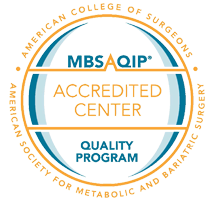 Following bariatric surgery in Salt Lake City, your weight loss surgeon will likely recommend a low-sodium diet consisting of several small healthy meals throughout the day. Unfortunately, it’s easier to control sodium intake at home than it is on the go. Knowing how to control sodium intake while dining out at restaurants can help you stay on track with your weight loss goals.
Following bariatric surgery in Salt Lake City, your weight loss surgeon will likely recommend a low-sodium diet consisting of several small healthy meals throughout the day. Unfortunately, it’s easier to control sodium intake at home than it is on the go. Knowing how to control sodium intake while dining out at restaurants can help you stay on track with your weight loss goals.
Consuming too much sodium is serious business for anyone, as it can increase your risk for high blood pressure and eventually lead to heart disease or stroke. Restaurants are some of the worst offenders for preparing high-sodium foods, so be on your guard and keep these tips in mind the next time you open a menu.
Here are some tips to help keep sodium intake to a minimum when dining out.
- Ask, ask, ask as much as you can about how the food you’re ordering will be prepared. Restaurants are notorious for dousing even the simplest things in spices, salts and marinades before cooking. Plain baked potatoes are often rolled in salt before baked which seems unnecessary since many don’t eat the skin in the first place.
- Locally-owned restaurants tend be low-volume and usually cook food to order, so they usually have a tendency to be more accommodating for customer requests. Don’t hesitate to ask questions or request your food to be prepared plain.
- Pass on the sauce that accompanies your entry or ask for it to be served on the side. Many sauces are high in sodium and not worth the negative health effects they can lead to.
- Stick to the basics when it comes to healthy proteins that are grilled, baked or roasted and steer clear of casseroles and pasta dishes. These dishes tend to be high in fat and sodium content and can rally thwart your post-surgery weight loss success.
- Taste your foods before you reach for the salt shaker. Often, food already has enough taste and doesn’t need additional salt, but people never know because they sprinkle salt on it before even trying the food.
- Skip condiments such as ketchup, mustard and salsa. They may be low in calories but all contain high amounts of sodium, so it’s best to use them sparingly.
Supplement your meal with fruits and plain vegetables instead of unhealthy, starchy sides like mashed potatoes and macaroni and cheese. Fruits and plain vegetables are naturally low in sodium and make for healthier alternatives when it comes to the sides that compliment your meal.
Sticking to a well-balanced and healthy low-sodium diet after surgery can be a bit tricky when dining out. So make sure to keep some of these tips in mind for reducing your sodium intake when you visit your favorite restaurants.


